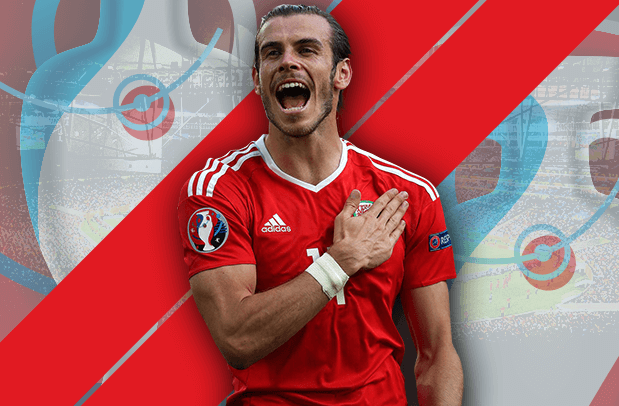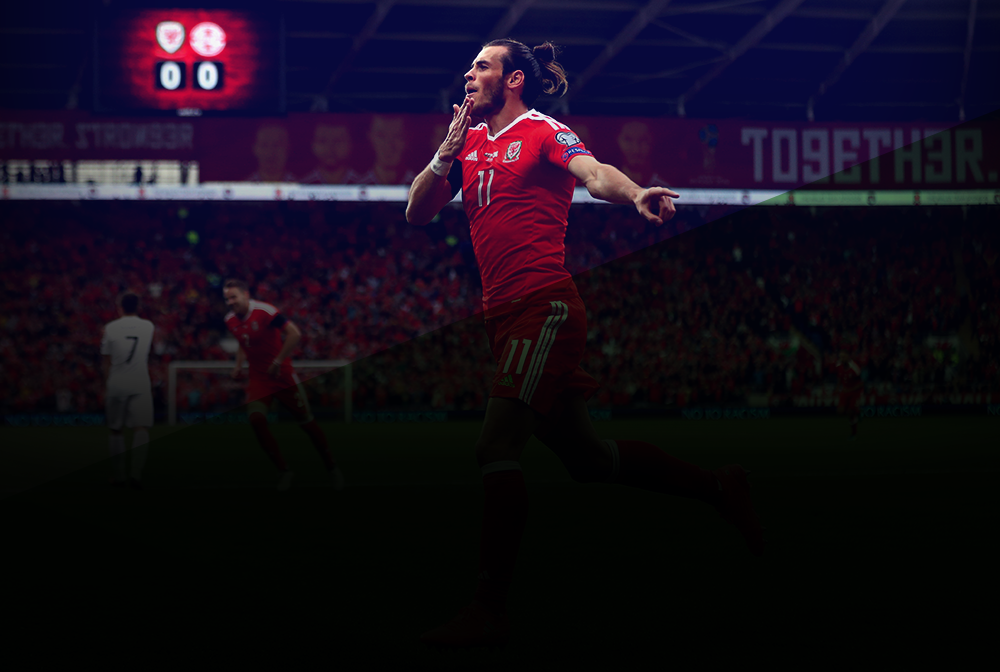Hrishi Anand writes about Wales, their team spirit, and the excellent all-round proficiency that has seen Wales come so far at Euro 2016.

Some footballing stories are just meant to be told, like, Blackburn Rovers’ Premier League title triumph, Leicester City’s fairytale rise to the summit of England after nearly losing a relegation battle a year before, and the Welsh footballing story. When the Welsh football team is mentioned, a single name comes to mind. Gareth Bale. The truth however is that the ‘Dragons’ are more than just Bale and 10 other men, they’re fighters with exceptional team spirit which has been perfectly showcased in their rise to the top folds of international football.
A Welsh History
Wales played its first football match in 1876 against Scotland and the Football Association of Wales became a FIFA member in 1906 but did not enter the first 3 world cups due to a dispute between England and FIFA.
1958 World Cup
Arguably the most famous year in Welsh football, Wales qualified for the World Cup in Sweden, 1958.
Their qualification however came under interesting circumstances, as Wales finished second in their qualifying group behind Czechoslovakia. However in the African qualifiers, Sudan and Egypt were opposed to playing Israel as a result of the Suez crisis. FIFA proclaimed Israel the winners of the group but were reluctant to allow a team to head to a world cup without playing a single game. The result- A two legged qualifier between Israel and a drawn team. Belgium, who were drawn first refused to participate in the tournament and as a result Wales were chosen. In the resulting games, Wales won 2-0 both home and away booking their tickets to Sweden. Even their world cup campaign was of historical importance as they made the quarter finals, and lost to Brazil with a footballing legend scoring the only goal aged just 17 making him the youngest goalscorer at a World Cup at that time!
Years of Silence
After their impressive World Cup, Wales went off the radar and rarely managed to qualify for International Tournaments, however, in 1976 the team managed by Mike Smith reached the last eight of a competition, in their first and only Euro appearance till 2016. A long spell of barren results and poor campaigns resulted in Wales reaching an all-time low.
Renaissance
When Wales were placed in group B of the 2016 Euro qualifying campaign in 2015, not much was expected from a hot and cold side that ‘revolved around Gareth Bale’s form and expertise’. The Dragons proved otherwise. An exceptional qualifying campaign meant that Wales topped their group ahead of quality teams like Belgium. And it wasn’t Bale who single handedly dragged the Welsh to the Euro Finals in France. While the team was built around the Real Madrid man, creative players like Arsenal’s Aaron Ramsey and defensive bedrock Ashley Williams, also had a more than bit-part role in the Welsh dream showcasing that Wales’ biggest asset was not just Bale but also an exceptional team spirit and talented players who could make a difference at any point. In September 2015, England dropped to 10th in the FIFA rankings making Wales in ninth were the highest ranked British team for the first time in history. In October 2015, Wales attained their highest ever FIFA ranking of 8th– one for the Welsh record books.
Style of Play
Chris Coleman has over the course of the qualifiers and the ongoing Euros, reinforced fearlessness into his team and an excellent tactical approach to games with a tight marking system. Wales are quite brave in terms of formation playing a 3-4-1-2 formation.
As expected the team is built around Gareth Bale who plays up front in a two striker system but is also largely dependent on Aaron Ramsey and Joe Allen pulling the strings from midfield.
It is said that defense is the best attack and clearly Coleman thinks so too, the Welsh defense has been outstanding in the Euros and that is largely due to the leadership qualities of captain Ashley Williams. Strong, powerful and good in the air, Williams is largely responsible for maintaining the shape of his 3 man back line. Tottenham’s Ben Davies has also shown himself to be a capable center back as illustrated by his astonishing goal line clearance in Wales’ game against Slovakia, arguably the best defending in the tournament. While there is a lack of pace in the back three, this is nullified by wing backs Chris Gunter and Neil Taylor who have a high work rate in terms of assisting their defense by forming essentially a back 5 and also getting forward into attacking positions when the need arises.
In midfield Joe Allen and Joe Ledley have been largely successful in sitting in front of the defense and playing as deep lying playmakers. The duo play good long balls for the pacey Bale to latch onto and are not afraid to put in a tackle to regain possession. Joe Allen, interestingly, has been very good for the Welsh and is doing an excellent job of playing a Pirlo-esque role and pulling the strings from deep in the midfield. He certainly seems to be an integral part of Wales’ game plan and his long ball to Aaron Ramsey against Russia in the group stage of the Euros was a clear reinforcement of his technical ability. Ledley and Allen also spread the ball wide to the attacking full backs when the midfield is crowded adding another dimension to Wales’ style of play.
Aaron Ramsey has been another integral cog in the Welsh team. Coming off the back of a slightly disappointing season with Arsenal, he has shown that he has the qualities to become a player of the Lampard/Gerrard mould. Often criticized for his losing of possession, Ramsey has been very good in picking out a pass but has also won the ball back with a robust tackle on many occasions when the opposition have the ball. An extremely intelligent player, his box-to-box ability sees him popping up in goalscoring positions more often than not and he also has good finishing ability. With him playing a more advanced role compared to Ledley and Allen, he has been able to create chances without the increased obligation to track back and defend as much.
Up front Gareth Bale is the talisman the Welsh absolutely adore, and understandably so. His terrifying pace, power and exquisite left foot have made the difference for the Welsh on so many occasions, not to mention his ridiculous prowess at set pieces. While Wales is more than just Bale, it certainly does not mean that the team does not depend on his form and skill. A real world class player, the Real Madrid man brings a certain X –Factor to the Welsh frontline and keeps opposition defenders on their toes. He is also ably supported by Hal Robson Kanu or Sam Vokes, who may not be as talented as their mercurial strike partner but are capable of putting the ball in the back of the net when presented with the chance. As good as they are, it certainly is hard to see the Dragons playing to their full ability without Bale on the pitch.
Conclusion
Some teams are more than just about talent and ability, they are about team spirit, mental strength and the hunger to achieve. The football team of Wales is a more than apt example of the same. Once not considered good enough to even qualify for major tournaments, the Dragons are now sending a message around the football world that they are not afraid to play fearlessly. And without the pressure of expectations, it isn’t difficult to envisage the Dragons becoming contenders for major tournaments in the near future. Their manager, Chris Coleman also deserves a lot of credit for his tactical approach and more importantly, motivating his team to walk out onto the pitch and play with freedom. From Cardiff to Swansea, the Welsh dream goes on.
Written by Hrishi Anand
- Talent Radar: 5 breakthrough players to watch in the Premier League - August 9, 2018
- Unai Emery at Arsenal: Tactical Approach & Key Players - August 8, 2018
- Scout Report: Jerry Lalrinzuala | India’s Promising Young Defender - March 13, 2018
























































